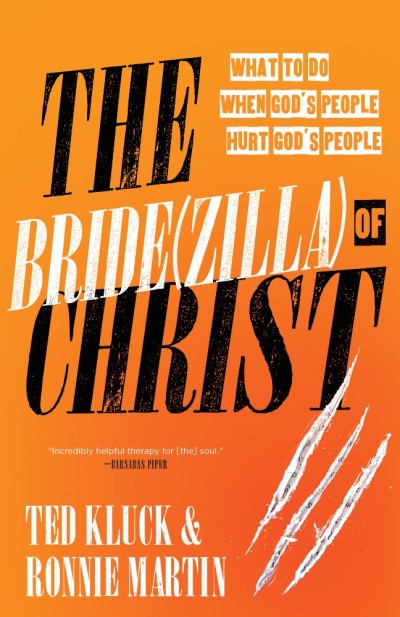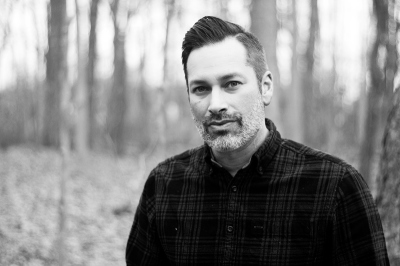'Bridezilla of Christ' Authors on What to Do When Christians in the Church Hurt Each Other

A Christian university professor and an evangelical pastor who've been wounded by fellow Christians have written a heartfelt book that engages their pain but also explains why they cannot give up on the Church.
In a recent interview with The Christian Post, Ted Kluck and Ronnie Martin, authors of the book The Bride(zilla) of Christ: What to Do When God's People Hurt God's People, said they hope that through the telling of their own stories of being hurt by people in the church, readers might feel less alone while still celebrating Christ's Church at the end of the day. And that is because the Church is God's redemptive institution in the world today.
Though states have separated them on numerous occasions, Kluck, 40, an assistant professor of communication arts at Union University in Tennessee, and Martin, 46, lead pastor at Substance Church in Ashland, Ohio, have been longtime friends. Both have previously written books and write for the popular Reformed website The Gospel Coalition.
"We are both very much all in on the Church, we believe in it, we believe that it's important, we believe that it's biblical," Kluck told CP. "But both of us have also been around the block a few times with the church, as it were ... and I have certainly been in situations where I was [among] the hurting."
"It felt like something that could have been written after some things experienced by each of us in different roles in the church, myself as a pastor and Ted as layperson," Martin added.

The authors exhibit a keen awareness of how church structures themselves can create the conditions for hurts to multiply.

As Kluck notes in Chapter 5, "Jesus Loves You, but I Think You're a Jerk," regarding insider clique hierarchies that can develop within churches, "with all things that harden the heart, we can be blind to things apart from the convicting power of the Holy Spirit. Am I desiring inclusion into some inner ring and, implicitly or explicitly, excluding others in my pursuit of it? Am I destroying or belittling others in order to increase my stock in the eyes or the inner destroying or belittling others in order to increase my stock in the eyes of the inner ring I desire the most?"
The authors are also familiar with the spirited theological debate dynamics within their own tribe and the broader Church. When certain personality types mix with theology, the very thing that ought to unite Christians ends up being the place where they hurt each other, the authors say.
"For me, when I'm tempted into those kinds of conflicts, or am tempted to kind of crush people or use my words or my writing to do that, I have been convicted to remember what I have been forgiven of and just what exactly Christ saved me from. It's devastating in the best possible way," Kluck said. "One way to mitigate against a lot of that smugness of what really is ugly about the Church is to celebrate what the Lord saved us from, and maybe we don't do that often enough."
Martin concurred, adding, "Whenever we start getting into these theological battles and we try to draw lines in the sand, I think what is always lacking is grace."
"In the Reformed movement, which has gained a lot of steam in the last decade, [there] are people who are high on the doctrines of grace. We need to see that extended into how we communicate those doctrines. It's one thing to line up on a theological point, it is another to actually be friendly about how we do that."
CP also asked Martin and Kluck what they wanted Christians to take away most from Bridezilla.
"The idea that we can attempt reconciliation, pray for it, hope for it, and that it can be a tangible thing," Martin said.
To that, Kluck added, "We wanted this to be manifestly relatable. The kind of thing that your average churchgoer could read and go 'Yeah, I've totally felt that way; finally, someone has said it.'"
"When somebody truly says 'I'm sorry for ...' Not [saying I'm sorry for] what the Church [did] 150 years ago before I was around, but I'm sorry for me, I'm sorry for myself — that's incredibly winsome. The other side of that is somebody saying and meaning, 'I forgive you.' And really, the only times I have ever seen that happen has been within the Church. So that compels me to stay in this even though it is not perfect."
For more on The Bride(zilla) of Christ, click here.





























